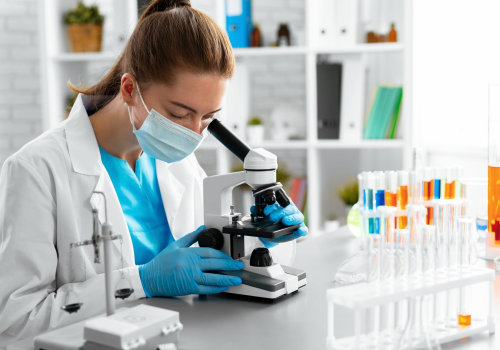Laboratory medicine is a field of science that encompasses a variety of disciplines, including clinical chemistry, hematology, microbiology, molecular biology, and anatomical pathology. Medical laboratories are equipped with sophisticated tools and equipment, such as microscopes, to conduct complex tests on patient samples. The field of laboratory medicine is constantly evolving as new technologies and techniques are developed. For example, molecular biology has become increasingly important in recent years as it allows for the detection of genetic mutations and other abnormalities.
Additionally, advances in technology have enabled laboratories to perform more accurate and precise tests. Laboratory medicine is an essential part of the healthcare system. It provides vital information to physicians and other healthcare professionals that can help them diagnose and treat diseases. Laboratory tests can also be used to monitor the progress of a patient's treatment or to detect any changes in their health.
Laboratory technicians are responsible for performing the tests and analyzing the results. They must be knowledgeable about the different types of tests and how to interpret the results accurately. They must also be able to use the laboratory equipment properly and safely. Laboratory medicine is a complex field that requires a great deal of knowledge and skill.
It is important for laboratory technicians to stay up-to-date on the latest developments in the field so that they can provide accurate results for their patients. Additionally, laboratory technicians must be able to work well with other healthcare professionals in order to ensure that patients receive the best possible care.








